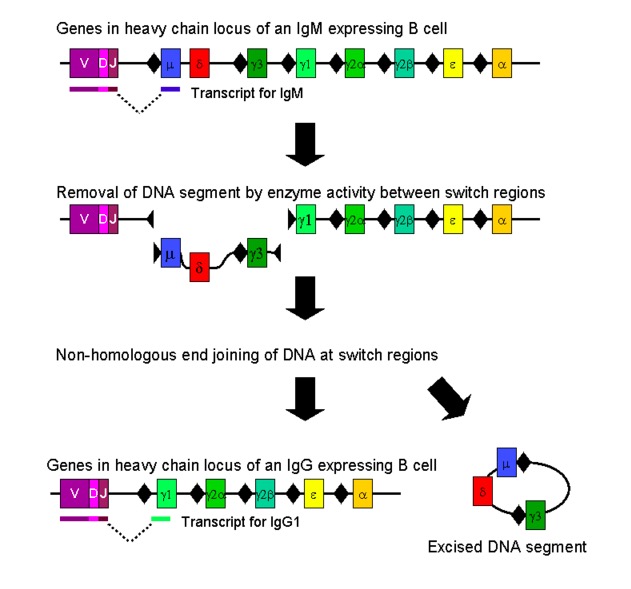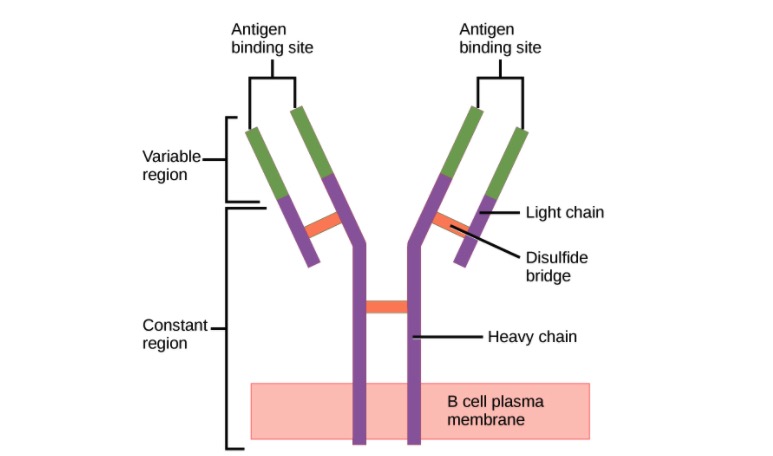Playlist
Show Playlist
Hide Playlist
Humoral Immunity: Introduction
-
08 Slides Humoral Immunity.pdf
-
Reference List Immune System.pdf
-
Download Lecture Overview
00:01 Humoral immunity is immunity provided by antibodies present in bodily fluid. 00:08 It is the major function of the B-cell component of the adaptive immune response, in contrast to cell-mediated immunity which results from the activity of T-cells. 00:19 However of course, T and B-cells work together. 00:22 And B-cells can function as professional antigen presenting cells using their MHC Class II molecules to present peptide MHC to CD4+ T-cells. 00:34 And helper T-cells help B-cells to class switch and differentiate into antibody-secreting plasma cells. 00:43 So these two types of immunity if you like, humoral immunity and cell-mediated immunity, they’re not totally separate from each other. 00:51 They very much work together.
About the Lecture
The lecture Humoral Immunity: Introduction by Peter Delves, PhD is from the course Humoral Immunity and Cell-mediated Immunity.
Included Quiz Questions
Which of the following cells are the main mediators of humoral immunity?
- B cells
- Regulatory T cells
- Cytotoxic T cells
- Natural killer cells
- Helper T cells
Customer reviews
5,0 of 5 stars
| 5 Stars |
|
5 |
| 4 Stars |
|
0 |
| 3 Stars |
|
0 |
| 2 Stars |
|
0 |
| 1 Star |
|
0 |





